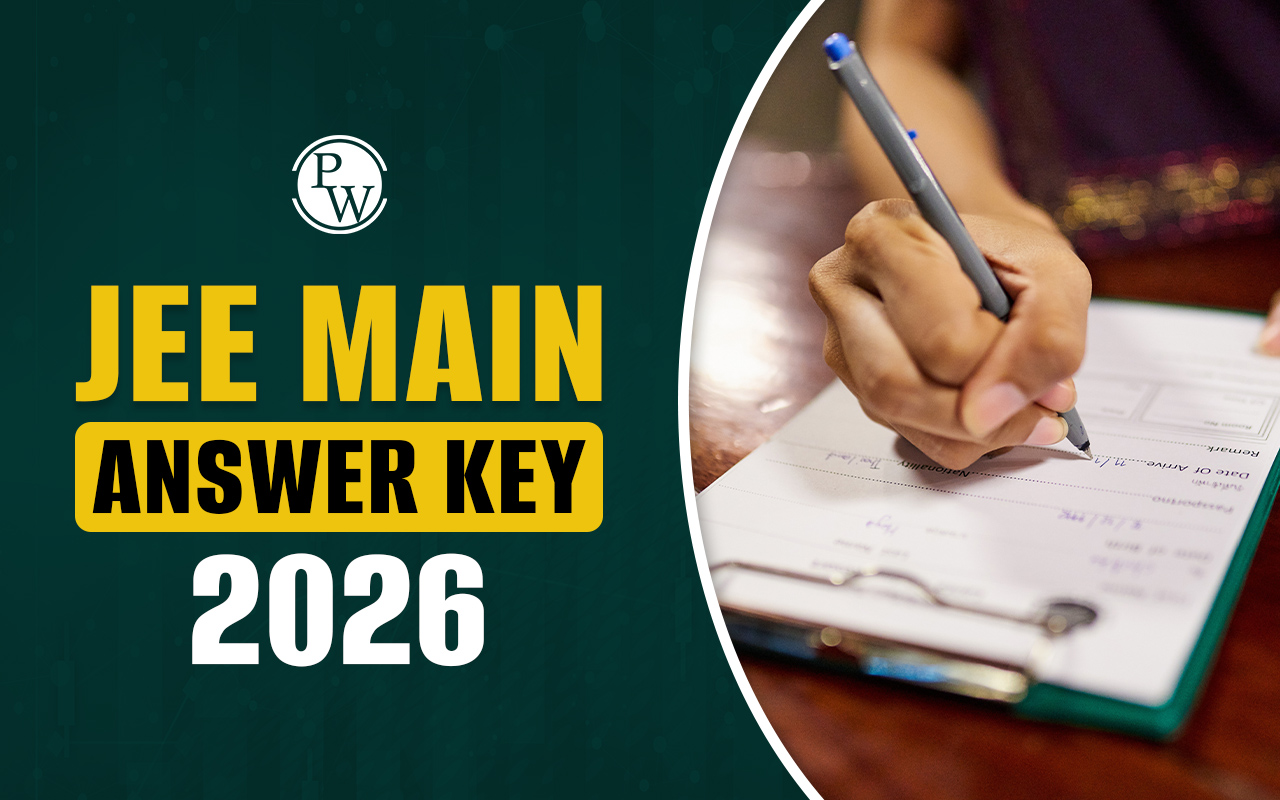
Difference Between Odd And Even Numbers : The difference between odd and even numbers may be stated in terms of their general forms. Odd numbers and even numbers are two key types of numbers in mathematics that students learn in their early education. Even and Odd Numbers are separate sets of whole numbers that are classified as odd or even according to specified features. Even numbers are precisely divisible by two, but odd numbers are not. The even and odd numbers are grouped alternately in the number system. It should be noted that a number cannot be both even and odd. There is a considerable difference between odd and even numbers . Achieve JEE excellence with PW JEE Online Course . Join now to fulfill your engineering dreams! Before we discuss the properties and difference between odd and even numbers, let’s first learn their meanings.
Even Number Definition
Even numbers are those that, when divided by two, leave zero as the remainder. An integer is considered even if it is perfectly divisible by two, leaving zero as the remainder. The last digit of an even number is always going to be 0, 2, 4, 6, or 8, thus we can recognize even numbers by keeping this in mind.How are Even numbers to be identified?
- By looking at the digit at the "ones" place
- By Dividing
Properties of an Even Number
Look at the addition, multiplication, and subtraction properties of even numbers.Addition Property
- An even number can be obtained by adding two even numbers. As an example, 12 + 8 equals 20.
- An odd number is equal to an even number plus an odd number. As an example, 6 + 7 equals 13.
- An even number can be obtained by adding two odd numbers. As an example, 15 + 11 equals 26.
Subtraction Property
- An even number can be obtained by subtracting two even numbers. As an example, 32 – 6 = 26.
- An odd number is the result of subtracting an even number from an odd number. As an example, 37 – 4 = 33.
- An even number is obtained by subtracting two odd integers. As an example, 63 – 17 = 46.
Multiplication Property
- An even number is created when two even numbers are multiplied. As an example, 14 x 2 equals 28.
- An even number becomes an odd number multiplied by an even number. As an example, 10 x 3 equals 30.
- An odd number can be obtained by multiplying an odd integer by another odd number. As an example, 3 x 5 equals 15.
Odd Number Definition
Odd numbers in mathematics are those that have a remainder of one when divided by two. When a number is divided by two and the remaining amount is one, the number is said to be odd. The method for recognizing odd numbers is to use the simple fact that their final digit is always one of these: 1, 3, 5, 7, or 9. It may be expressed as 2n+1, where n is any whole number.Difference Between Odd and Even Numbers
We have learned what even and odd numbers are. We will now learn the difference between odd and even numbers. The following table lists the basic difference between odd and even numbers :| Difference Between Odd and Even Numbers | ||
| Property | Odd Numbers | Even Numbers |
| Definition | Numbers with a remainder of 1 when divided by 2 | Numbers with a remainder of 0 when divided by 2 |
| Representation (Mathematical) | Can be expressed as 2n + 1, where n is an integer | Can be expressed as 2n, where n is an integer |
| Examples | 81, 35, 55, 7, etc. | 98, 26, 48, 6, 8, etc. |
| Last Digit Pattern | Ends with 1, 3, 5, 7, or 9 | Ends with 0, 2, 4, 6, or 8 |
| Product of Two Numbers | The product is always an odd number | The product is always an even number |
| Sum of two Numbers | The sum is always an even number | The sum is always an even number |
| Prime Number Property | Odd numbers (except 1) are prime numbers | Even numbers (except 2) are non-prime numbers |
Difference Between Odd and Even Numbers FAQs
Q1: How do you know if a number is odd or even?
Ans. A number is divided by 2 to find out whether it is even or odd. A number is considered to be even if the remainder left behind after division is zero.
Q2: How do you compare odd and even numbers?
Ans. The number is even if its last digits are 2, 4, 6, 8, or 0. A number is odd if its last digit is one of the following: 1, 3, 5, 7, or 9.
Q3: Is 0 an even or odd number?
Ans. The number zero is even. To show that zero is even, one may easily verify that it meets the criteria for "even", which is an integer multiple of two, particularly 0 × 2.
Q4: Which is the smallest even number?
Ans. 2 is the smallest even number. Also, it is the only even prime number and the smallest prime number.
Q5: Is -2 even or odd?
Ans. An even number is an integer that is "evenly divisible" by 2, i.e., divisible by 2 without a remainder. So, ..., -4, -2, 0, 2, 4, ... are all even integers.
🔥 Trending Blogs
Talk to a counsellorHave doubts? Our support team will be happy to assist you!

Check out these Related Articles
Free Learning Resources
PW Books
Notes (Class 10-12)
PW Study Materials
Notes (Class 6-9)
Ncert Solutions
Govt Exams
Class 6th to 12th Online Courses
Govt Job Exams Courses
UPSC Coaching
Defence Exam Coaching
Gate Exam Coaching
Other Exams
Know about Physics Wallah
Physics Wallah is an Indian edtech platform that provides accessible & comprehensive learning experiences to students from Class 6th to postgraduate level. We also provide extensive NCERT solutions, sample paper, NEET, JEE Mains, BITSAT previous year papers & more such resources to students. Physics Wallah also caters to over 3.5 million registered students and over 78 lakh+ Youtube subscribers with 4.8 rating on its app.
We Stand Out because
We provide students with intensive courses with India’s qualified & experienced faculties & mentors. PW strives to make the learning experience comprehensive and accessible for students of all sections of society. We believe in empowering every single student who couldn't dream of a good career in engineering and medical field earlier.
Our Key Focus Areas
Physics Wallah's main focus is to make the learning experience as economical as possible for all students. With our affordable courses like Lakshya, Udaan and Arjuna and many others, we have been able to provide a platform for lakhs of aspirants. From providing Chemistry, Maths, Physics formula to giving e-books of eminent authors like RD Sharma, RS Aggarwal and Lakhmir Singh, PW focuses on every single student's need for preparation.
What Makes Us Different
Physics Wallah strives to develop a comprehensive pedagogical structure for students, where they get a state-of-the-art learning experience with study material and resources. Apart from catering students preparing for JEE Mains and NEET, PW also provides study material for each state board like Uttar Pradesh, Bihar, and others
Copyright © 2026 Physicswallah Limited All rights reserved.









